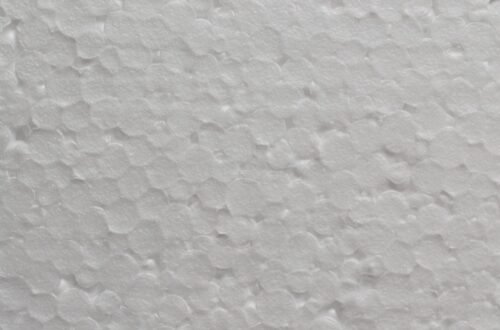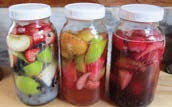Sustainability is a big deal nowadays. You’ve probably noticed more brands advertising eco-friendly products — such as electric vehicles (EVs) — to sway consumers. EVs aren’t an easy purchase for the average person, so how can you be more environmentally conscious? Start in your home by finding these 10 items and swapping them for sustainable alternatives.
1. Wet Wipes
Wet wipes have become a convenient product you can use for many things. People use them for removing makeup at night or gently cleaning babies. You also see medical professionals use them to clean wounds or apply medication. These products are easy to use, but their environmental impact is too much to ignore.
Some wet-wipe brands say they’re flushable, but that’s not always true. Most wet wipes aren’t biodegradable, meaning they pile up in landfills and take over a century to decompose. Plus, they can clog your septic system and cost thousands in repairs. Instead, opt for biodegradable wipes or reusable versions to reduce your waste.
2. Bottled Water
Staying hydrated is essential any time of year, so you likely carry water everywhere. After all, experts recommend drinking four to six cups of plain water, depending on your intake of other foods and beverages. Water itself is sustainable, but your container of choice matters. Plastic-bottled water has a significant environmental impact.
The amount of bottled water waste in the U.S. is astounding. Americans throw away 60 million water bottles daily and nearly 22 billion yearly. Plastic waste harms wildlife when it ends up in landfills and oceans, so it’s best to consider other options. For example, use a thermos to keep water at your desired temperature and reduce plastic usage.
3. Single-Use Batteries
Technology has become integral to daily life from dawn up until dusk. Your technological devices are beneficial but come with two caveats — increased energy consumption and battery usage. Batteries are necessary to power TV remotes, computer mice, fans, and more. However, single-use ones end up harming the environment.
Most batteries contain non-renewable materials, such as lithium and cobalt. Each tiny unit leaks elements into the soil when you throw a battery away. Burning them produces a worse outcome because it sends contaminants into the atmosphere. Opt for rechargeable batteries to extend their life span.
4. Toxic Cleaners
Imagine it’s time for spring cleaning. You get your bleach, drain cleaner, all-purpose cleaner bottles, wipes, and everything else you need to deep clean your home. Scrubbing the floors and the shower is a worthwhile way to spend your afternoon, but you should be mindful of toxic cleaners’ impact on your home.
Many household cleaners you see on the shelves spread harmful chemicals in the air, even though you’re trying to clean the place. These products are dangerous because of their volatile organic compounds (VOCs). VOCs harm the environment and your health, so consider alternatives. Buy non-toxic products at the store or make your cleaners with vinegar, essential oils, and other ingredients.
5. Toxic Laundry Detergent and Dryer Sheets
Unfortunately, your household cleaners also extend to your favorite laundry detergent. You may love the lavender smell from your clean shirts, but behind the fresh aromas are toxic chemicals that harm the environment. The detergent goes down the drain and into waterways, harming wildlife with substances like heavy metals and phosphates.
You still need to wash your clothes, so find environmentally friendly alternatives for your detergent. These products don’t contain the dyes or artificial fragrances you typically find in other detergents. Alternatively, you can make homemade laundry detergent with baking soda, washing soda, and bar soap.
When you’re done, hang your clothes to dry rather than use the dryer. Not only will this reduce energy produced by the dryer, but you can stop buying dryer sheets, as well. Dryer sheets do not have any real benefits for your clothes, and they just end up in the trash when you’re done.
6. Paperback Books
You may prefer to read books the traditional way. What’s better than a hardcover book you can hold in your hand? You can even use the pretty bookmark you’ve kept since elementary school. However, consider the environmental impact of your books. Each novel requires cutting down a tree, thus emitting carbon dioxide (CO2).
Luckily, there are two great solutions so you can keep on reading. One sustainable alternative is using an e-reader. These devices initially have a higher carbon footprint, but reading at least 36 e-books will offset its environmental impact. Your e-reader can hold thousands of books, so it’s better for the environment in the long run.
If you still prefer the feeling of a physical book, go to your local library. Libraries can help you avoid buying new books that will either take up space in your home or end up in a landfill. They are also important institutions in our communities that deserve more support, so it’s a win-win.
7. Coffee Pods
Coffee lovers may have a problem with this one. You may choose coffee pods out of convenience, especially with those early-morning wake-up calls. However, their environmental impact deserves a closer look.
Most coffee pods contain plastic or aluminum linings, making them difficult to recycle. They’re convenient and easy to use, but their waste quickly adds up. Instead, opt for recyclable pods or use a different method for coffeemaking. For example, using a French press requires no filters or pods, making it more sustainable.
8. Tea Bags
The news isn’t much better for your afternoon tea. Unfortunately, some tea bags are not sustainable due to their plastic usage. Manufacturers have started making tea bags with non-biodegradable plastics, such as polypropylene. This thermoplastic polymer takes over 20 years to degrade once you throw it away.
Your tea bag may only contain a few milligrams of plastic, but imagine how much tea you and the rest of the world consume daily. Millions of tea bags enter landfills and endanger wildlife who come across them. Instead, brew homemade tea with biodegradable bags or make loose-leaf tea. Every tiny change you make to your routine matters.
9. Single-Use Chopsticks
After a long day, you just want to get takeout and skip making dinner at home. Shrimp fried rice from your favorite restaurant sounds like a fantastic dinner, but the chopsticks you eat it with could be better for sustainability.
Most restaurants hand you a pair of single-use wooden chopsticks. These utensils require cutting trees and releasing CO2, negatively affecting the environment. Instead, pass on the wooden chopsticks and opt for reusable versions, such as metal. After dinner, you can put them in the dishwasher and make them good as new.
10. Plastic Utensils
Imagine you’re hosting a birthday party for your child or a Super Bowl viewing party. If 25 people come over, giving everybody plastic forks and spoons to eat their food may be the easiest choice. You’ll have fewer dishes to clean, and disposal only requires tying up a trash bag and throwing it away. However, it’s essential to consider the environmental impact of these single-use plastics.
Americans use about 100 million plastic utensils daily, contributing significant waste to landfills. Throwing away plastic knives and forks pollutes waterways and can kill fish if they try to eat your leftover utensils. Instead, choose biodegradable options made from starch or other more sustainable materials.
Finding Sustainability at the Store
Living sustainably can be easier said than done. You need gasoline to drive to work and electricity to power your home, so some things are hard to avoid. However, you can stop buying these 10 items and use more sustainable alternatives.
Author bio: Cora Gold is a sustainable living blogger and the editor of women’s lifestyle magazine, Revivalist. Connect with Cora on LinkedIn to read more about simple, eco-friendly living.







